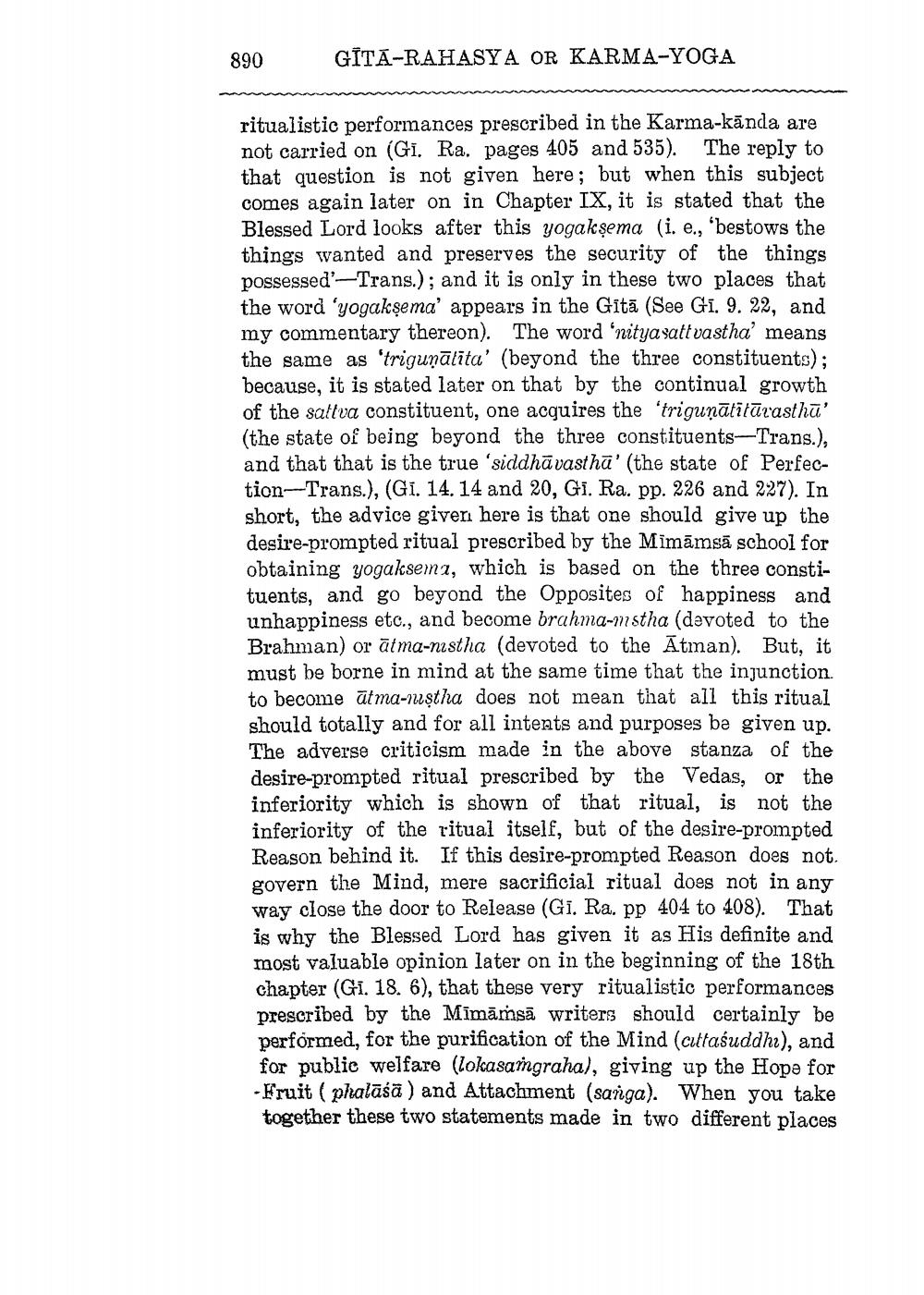________________
890
GITA-RAHASYA OR KARMA-YOGA
ritualistic performances prescribed in the Karma-kānda are not carried on (Gi. Ra. pages 405 and 535). The reply to that question is not given here; but when this subject comes again later on in Chapter IX, it is stated that the Blessed Lord looks after this yogakşema (i. e., 'bestows the things wanted and preserves the security of the things possessed'-Trans.); and it is only in these two places that the word 'yogakşema' appears in the Gitā (See Gi. 9. 22, and my commentary thereon). The word 'nitya sattvastha' means the same as 'triguņālīta' (beyond the three constituents); because, it is stated later on that by the continual growth of the sattva constituent, one acquires the 'triguņātitūvasthā' (the state of being beyond the three constituents-Trans.), and that that is the true 'siddhāvasthā' (the state of Perfection-Trans.), (Gi. 14. 14 and 20, Gi. Ra. pp. 226 and 227). In short, the advice given here is that one should give up the desire-prompted ritual prescribed by the Mimāmsā school for obtaining yogaksema, which is based on the three constituents, and go beyond the Opposites of happiness and unhappiness etc., and become brahma-17 stha (devoted to the Brahman) or ātma-nistha (devoted to the Atman). But, it must be borne in mind at the same time that the injunction to become at ma-ruştha does not mean that all this ritual should totally and for all intents and purposes be given up. The adverse criticism made in the above stanza of the desire-prompted ritual prescribed by the Vedas, or the inferiority which is shown of that ritual, is not the inferiority of the ritual itself, but of the desire-prompted Reason behind it. If this desire-prompted Reason does not govern the Mind, mere sacrificial ritual does not in any way close the door to Release (Gi. Ra. pp 404 to 408). That is why the Blessed Lord has given it as His definite and most valuable opinion later on in the beginning of the 18th chapter (Gi. 18. 6), that these very ritualistic performances prescribed by the Mīmāṁsā writers should certainly be performed, for the purification of the Mind (cittaśuddhi), and for public welfare (lokasangraha), giving up the Hope for Fruit (phalāśa ) and Attachment (sanga). When you take together these two statements made in two different places




